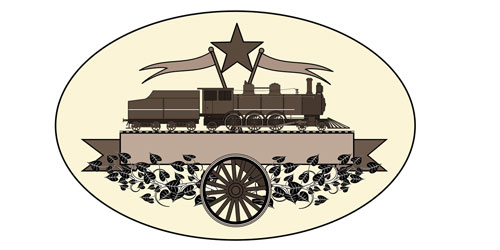《论语诠解英文版》——Chapter V"公冶长" (Gongye Chang)
[5- 1] 子谓公冶长: “可妻也,虽在缨维之中,非其罪也。“以其子妻之。
5.1 The Master said of Gongye Chang, "I would marry off my daughter to him. Although Gongye is in prison, he is innocent." So, he gave his daughter to him as wife.
[Comment] "公冶长gong ye ch6ng" was one of the leading disciples of Confucius. "谓 w创" means "to comment, to talk about" and "妻 q1 " is used as a verb which translates as "to wed one's daughter to someone as his wife." '嫘 维 怡i xi扩 is literally "strings used to tie people up," but here implies Gongye Chang's imprisonment. " 子 zT" was used in ancient times to refer to "children." Yet here, it finds a more specific context and refers to "daughter."
[Reading] This chapter demonstrates two personal attributes of Confucius. First, it is Confucius'inclination to concretize his assessment of someone's virtue through a verbal analogy, for example, a person might be so good that you would like to marry your own daughter to him. Second, it is Confucius' demonstration of the precepts he set up for his disciples: one's action should live up to one' s own words. He not only praised Gongye's virtues by aver bal analogy, but also synchronized his words with his action.
[5- 2] 子谓南容: “邦有道,不废;邦无道,免千刑戮。“以其兄 之子妻之。
5.2 The Master said of Nan Rong, "When the state is well governed, he would be positioned in office. When the state is wrongly governed, he would be spared punishment." So , he married off his niece to Nan as his wife.
[Comment] "南荣na n r6ng" refers t矿'南宫适 na n gong kuo," whose courtesy name was "子容 zT r6ng" and who was a disciple of Confucius ."不废bu 伶i" means "not to be abandoned," while "刑戮xfng lu" translates as "punished or sentenced to death for crimes."
[Reading] Confucius complimented Nan Rong's great political and social virtuosity, which would enable Nan to make contributions to society in times of peace but spare him from harm in times of turmoil.
[5- 3] 子谓子贱: “君子哉若人!鲁无君子者,斯焉取斯?”
5.3 The Master said of Zijian, "He is indeed a man of true virtue. If there are no virtuous men in the State of Lu, from where did he acquire such a noble character?"
[Comment] A disciple of Confucius , "子贱 zT jian" had the surname of "必fu". His given name was "不齐 b u qf," and he also held a courtesy name of
“子贱 zT jian ." "若人 ruo r 的 " con verts to "this man," which here refers to Fu Zijian. "斯 sl'' in "斯焉取斯 s1 yon qu s1" is a pronoun in two parts, the first of which refers to Fu Zijian, while the second refers to the fine quality of a man of true virtue.
[Reading] Confucius adumbrated the fact that there were still virtuous men in the State of Lu, though they were very rare. This belief is best illustrated in Chapter VI where Confucius states: "The State of Qi, if transformed, could reach the level of the State of Lu. The State of Lu, if transformed, could reach the Way of supreme principles."
[5- 4] 子贡问曰: "赐也何如?”子曰: “女,器也。"曰: “何器也?”曰: "瑚琏也。"
5.4 Zigong asked, "What do you think of me?" The Master said, "You are like a utensil." "What kind of utensil?" "An embellished sacrificial utensil."
[Comment] "赐 c1" refers to "端木赐 d ua n mu Cl," whose courtesy name was " 子 贡 zT gong" and who was one of the leading disciples of Confu- cius." 器 q1" translates as a "utensil," while " 瑚琏 h u lion"connotes both"瑚沁" and " 琏 lio n," which were the utensils used to contain food at sacrificial ceremonies in ancient China.
[Reading] When Confucius compared Zigong to a "container" for sacrificial purposes, he not only acknowledged Zigong's talent and his contribution to social decorum, but also pointed to Zigong's limitations. Zigong is re nowned for his eloquence, intelligence, as well as his talent in doing busi ness and handling politics. But Zigong is still a "container" in the eyes of Confucius, only limited to a certain function. For Confucius, 君子 J unzi (a superior man of true virtue) should not be limited to a certain function in his contribution to humankind.
[5- 5] 或曰: "雍 也 ,仁 而不佞。“子曰: "焉用佞?御人以口给, 屡憎千人。不知其仁,焉用佞?”
5.5 Someone said that though a man of true virtue, Yong is not articulate and eloquent. The Master said, "What's good to be eloquent? Those who like to deal with others with sharp talks and bickering words most likely would incur aversion. I am not sure if he is a virtuous man. But why should he be an eloquent speaker?"
[Comment] " 雍 ya ng" was a disciple of Confucius. His surname, given name, and courtesy names were "冉 ra n," " 雍 ya ng ," and "仲弓 zho ng gong" respectively. "f妥 n1ng " can be translated as "articulate, expressive, eloquent, or well-spoken." "御 yu" connotes "to resist, to respond" and "给 jT" indicates that one is "expressive, eloquent."
[Reading] In Analects, there are quite a few places in which Confucius dis couraged people from being too eloquent in speech. It is not that Confucius did not acknowledge the value of eloquence. Rather, Confucius contended that excessive eloquence is likely to backfire because one's actions probably cannot reflect what he says and because his own eloquence of speech and his self-conceit arising from this talent might prevent him from pursuing more profound thought. Throughout the Ana lects, Confucius distinctly differenti ated one's intelligence from true insight into reality. The former sometimes is an obstacle for an individual to achieve the latter.
[5- 6] 子使漆雕开仕。对曰: “吾斯之未能信。"子说。
5.6 The Master encouraged Qidiao Kai to join the officialdom. He replied, "I am not ready yet." The Master was pleased to hear this.
[Comment] "漆雕开 qT di 砍o kai" was a disciple of Confucius. His surname was " 漆雕 qT diao," his given name " 开kai," and he held a courtesy name of " 子开 zT kai," also "子若 zT ru o ." " 仕 sh1"is the state of" being appoint ed as an official ," while '节兑yue " is used interchangeably with "悦yue " to indicate that one is "delighted."
[Reading] When Kai indicated that he was not ready for an official position, he exhibited his self-knowledge of inadequacy based upon his scruples and seriousness in his attitude toward his future career. To this, Confucius gave his compliment.
[5- 7] 子曰:“ 道 不 行 ,乘桴 浮 千 海 。从我 者 ,其由 与!“ 子 路 闻 之 喜 。子曰: ”由也好勇过我,无所取材。"
5.7 The Master said, "If my doctrines do not work, I shall get upon a raft on the sea and go abroad. I guess Zhong You will follow me." Zilu (Zhong You's courtesy name) was delighted to hear this. The Master continued, "Nonetheless, You (Zhong You) are more daring than is required by the righteous, thus outrunning discretion."
[Comment] " 道 dao" has a wide range of implications. In the context of this passage, it can be translated as "thought, learning, virtue, or point of view." " 桴f u" refers to a kind of watercraft made of bamboo or wood which held further names based on their size—the larger ones called "筏 f6 ," and smaller vessels "桴 f u." The character "我 wo" in " 好勇过我 ha o yang guo w6" is actually wrongly used, as it is mistaken for "义 yL" "子路 zT I u," a disciple of Confucius, was a courtesy name for "仲由 zho ng y6u ."
[Reading] Zilu was a typical example of the excessiveness of action. He was courageous, but his courage oftentimes ran overboard and turned into recklessness. Confucius offered warnings to him multiple times throughout the Analects.
[5- 8] 孟武伯问:“ 子路仁乎?” 子曰:“不 知 也 。” 又问。子曰: ”由 也 ,千乘之国,可使治其赋也,不知其仁也。”“ 求也何如?“子曰:“ 求也,千室之邑,百乘之家,可使为之宰也,不知其仁也。”“赤也何如?” 子曰: “赤也,束带立千朝,可使与宾客言也,不知其仁也。"
5.8 Meng Wubo asked the Master whether Zilu was a virtuous man. The Master said, "I do not know." When he asked again, the Master said, "Zhong You, who rules a state of a thousand chariots, could be put in charge of mili tary affairs. But I do not know if he is really a virtuous man." "And what do you think of Ran Qiu?" The Master said, "Ran Qiu, who heads a town of a thousand households and a fief of a hundred chariots, may be employed as a governor. But I do not know if he is really a virtuous man." Meng Wubo then asked, "What do you think of Gong Xihua?" The Master said, "Gong Xihua, when dressed up in sashes and standing in the court, might be ap pointed to greet visitors and guests. But I do not know if he is really a virtu ous man."
[Comment] "赋f u" means " 兵赋 bTng fu," which implies "military affairs." “求 q i u" refers to "冉有 ra n you" who was a disciple of Confucius . "邑 y1" connotes "a place people inhabited in ancient times." It was divided into " 公邑 go ng y1" and " 采邑 cai y1." " 公邑 g o ng y1" was under the control of a prince, whereas " 采 邑 cai y1" was the fief of high-ranking officials such as prime ministers and ministerial-level administrators. " 家 jia " refers to the fief of high-ranking officials in ancient times, that is "采邑 cai y1." " 宰za i" were household servants in the families of those high-ranking officials or administrators in "采邑 ca i y1." " 赤 c h1" refers to "公西华 go ng XI hu6," who was a disciple of Confucius. His surname was " 公 西 go ng xT," given name"赤 c h1," and he held a courtesy name of "子华 z'f hu6."
[Reading] This section displays the fact that Confucius set up very stringent rules for a man of virtue or 君 子 Junzi. Only possessing a certain kind of ability (moral or political) does not necessarily indicate that one is a 君子 Junzi.
[5- 9] 子谓子贡曰: “女与回也孰愈?”对曰: "赐也何敢望回? 回也闻一以知十,赐也闻一以知二。“子曰:" 弗如也,吾 与女弗如也!”
5 .9 The Master asked Zigong, "Who do you think is superior, yourself or Hui?" Zigong replied, "How could I possibly compare myself to Hui? When he learns one thing, he understands everything. When I learn one thing, I only understand the next." The Master said, "You are not equal to him. We: you and I, are all not equal to him."
[Comment] "愈yu" translates as "superior, better than."
[Reading] Yan Hui was the only one among Confucius'disciples that Con fucius ceaselessly complimented for his learning, his wisdom, and his close ness to 仁 Ren. Yan Hui would certainly have been chosen as the heir to Confucius if he did not die young.
[5- 10] 宰予昼寝。子曰: "朽木不可雕也,粪土之墙不可朽也; 千予与何诛?”子曰: “始吾千人也,听 其 言 而信其行;今 吾 千人也, 听 其 言 而观其行。千予与改是。"
5.10 Zai Yu slept during the daytime. The Master said, "Decayed wood cannot be carved; walls made of dirty earth cannot be painted by a masonry trowel. What is the use of my scolding Yu?" The Master also said, "At first, I trusted people to do what they said. But now I listen to what a man says and observe what he would do accordingly. It is from Yu that I have learned to change my ways of observation."
[Comment] "昼寝zho u qTn" translates as the phrase "to sleep during the dayti me." "朽 wO" refers to a kind of bricklayer's "trowel" which was used for leveling, spreading, or shaping substances such as plaster or mortar on a wall. "诛zhO" connotes "censure."
[Reading] From this anecdote Confucius underscored the importance of matching one's words with one's actions. When one's words exceed his ac tions, the negative effect derived from this excess is even more detrimental than if one did not speak in the first place. However, a more serious problem lies in those whose words are not reflected in their behaviors. More danger ously, we are more likely to hear what they say than to see what they do.
[5- 11] 子曰:“ 吾 未 见 刚 者 。”或 对 曰: "申 帐 。“ 子 曰:"帐 也 欲 , 焉得刚?”
5.11 The Master said, "I have not yet seen a firm and resolute man." Some one claimed that Shen Cheng was such a man. The Master said, "A man of so many desires, how can Shen Cheng be firm and resolute?"
[Comment] "申帐 s he n c h的 g" was the name of the person in discussion in the quote.
[Reading] Selfish desire and righteousness are mutually exclusive. The object of desire would infringe upon one's determination to do the right thing.
[5- 12] 子贡曰:“我 不 欲 人 之 加 诸 我 也 ,吾 亦 欲 无 加 诸 人 。“子 曰:
"赐也,非尔所及也。"
5.12 Zigong said, "What I do not want others to do to me, I do not want to do to them." The Master said, "Ci, you have not reached that level yet."
[Comment] "子贡 zT gong" was a disciple of Confucius, whose name was “端木赐 d ua n mu d" and whose courtesy name was "子贡 zT gong."
[Reading] Confucius cautioned Zigong against over-valuing himself. Zigong's problem, as Confucius perceived it, is that he was able to preach empathy but unable to perform it.
[5- 13] 子贡曰: “ 夫子之文章, 可 得 而闻也。夫子之言性与天道, 不可得而闻也。"
5.13 Zigong said, "What the Master has to say about his doctrines and clas sics may be heard somewhere else. But his discourses on human nature and the Way of Heaven can only be heard here."
[Comment] " 文 章 w 的 zha ng " refers to "Confucius'doctrines and the classics he compiled such as '《诗经》s hT jTng'(Classic of Odes), '《尚书》shang shu'(Book of Documents), ' 《礼记》IT j1'(Book of Rites), and ' 《乐经》yue jTng ' (Cla ss ic of Music)." "性 x1ng " means "human nature" and "天道防n d的 " can be translated as "the Way of Heaven."
[Reading] Other sources of the interpretation of the Analects mostly trans late this passage into the inaccessibility of Confucius'words on the Way. But given the fact that Confucius did editing work for the Book of Changes, he would be very interested in sharing these ontological views with his dis ciples. Being one of Confucius'eminent students, Zigong was confident of elaborating Confucius'ideas of the Way and very likely to claim his ortho dox linage from his Master in terms of Confucius'discussions of the Way.
[5- 14] 子路有闻, 未 之 能 行 , 唯 恐 有 闻 。
5.14 If Zilu was not able to put into practice what he had learned, he would be afraid to be taught something new.
[Comment] "子路 zT lu" was one of the leading disciples of Confucius. "有闻 yo u w 的 " means "what has been heard" and here " 有 yo u" is used inter changeably with "又yo u."
[Reading] This section underscores Zilu's awareness of the importance of the consistency of one's words and actions. It also echoes other sections in which Zilu is depicted as a man of action rather than a preacher, whereas Zigong is probably just the opposite.
[5- 15] 子贡问曰:“ 孔 文 子 何 以 谓 之` 文 '也? “ 子 曰: "敏 而 好 学 , 不耻下问,是以谓之`文'也。"
5.15 Zigong asked, "How did Kong Wenzi obtain the posthumous title of Wen?" The Master said, "He was intelligent and loved to learn. He was never ashamed to learn from his inferiors! That is why he obtained the title."
[Comment] "孔文子 ko ng w却 zT" refers to "孔圉 ko ng yu," who was a prime minister for Duke Ling of the State of Wei.
[Reading] Confucius, in this section, defined "Wen" or a good scholar by emphasizing one's courage to admit one's own lack of knowledge. This, once again, underscored Confucius'intention of offering special instruction to Zigong with regard to his predisposition.
[5- 16] 子谓子产: “有君子之道四焉:其行己也恭,其事上也敬, 其养民也惠, 其使民也义。"
5.16 Master said of Zichan, "He has possessed four distinguished character istics of a superior virtuous man: He was gracious in his private conduct; he was respectful in serving his superior; he was benign in taking care of the people; and he was upright in dealing with the people."
[Comment] "子产 zT c h如 " was the grandson of "公孙侨 g o ng sun q i6o," a minister in the State of Zheng. His courtesy name was "子产 zT chan," but he was also known as " 子美 zT m 创“
[Reading] Confucius commented on Zichan by praising him as a 君子J un- zi, a morally superior man. It seems that Confucius identified a kind of true virtue 仁 Ren in Zichan and generously called him 君子 J unzi on account of Zichan's four sub-virtues. As one who is the embodiment of 仁 Ren, Zichan is truly a rarity in the Analects.
[5- 17] 子曰: "晏平仲善与人交,久而敬之。"
5.17 The Master said, "Yan Pingzhong was good at befriending people. The longer the people have known him, the more they have respected him."
[Comment] "晏平仲 yon pf ng zhong" refers to "晏婴 yon yTng," who was a minister in the State of Qi.
[Reading] Confucius held a very high opinion of Yan Ying, whose respect able traits are revealed if one befriends him long enough for these traits to become apparent. Friendship is something like a good wine, which takes time to brew and which becomes finer with age.
[5- 18] 子曰: "臧文仲居蔡,山节藻税,何如其知也?”
5.18 The Master said, "Zang Wenzhong kept a big turtle in his house, which featured fine brackets elaborately carved in the shape of hills and pillars above the beams lavishly ornamented with the images of duckweed. What was he smart about?"
[Comment] "臧文仲 za ng w的 zho ng" refers to "臧孙晨 za ng sun ch的 ,"who was a minister in the State of Lu. "文 w的 " was his posthu mous title. "居 ju" means "to reside, to store, enable to reside," while "蔡cai" might be translated as "a big turtle used for prophecy." "山节 s ha n 胎" refers to a kind of bracket for a building and "藻 zoo" means "duckweed.",才兑z h u6 " is a name for a kind of column which was elaborately carved, and used to support a beam. In its broadest sense, "山节藻税s ha n jie zoo zhu6" implies an imperial architectural style officially prescribed only for the royal court. However, in the context of this passage, Confucius was criticizing Zang Wenzhong's violation of the rites of propriety: as a minister, it was improper of him to use this imperial architectural style for his private residence.
[Reading] Confucius is renowned for his advocacy of social decorum, which is a significant initial stage for a person to become a 君子 J unzi and for a society to become a productive and moral one. However, this does not mean that Confucius'doctrine of social hierarchy is a rigid one. Circumstan tial reading of Confucius'Analects sheds light of this point.
[5- 19] 子张问曰:“令 尹 子 文 三仕为令尹,无喜 色; 三己之,无 温 色 。旧令尹之政,必以告新令尹。何如?“子曰:“忠矣。"曰:“仁矣乎?” 曰: “ 未 知 。 焉 得 仁? ”"崔子弑齐君,陈文子有马十乘,弃而违之。至千他邦,则曰: `犹吾大夫崔子也。'违之。之一邦,则又曰: `犹吾大夫崔子也。'违之。何如?”子曰: “清矣。"曰: “仁矣乎?”曰: “未知。焉得仁? ”
5.19 Zi Zhang asked the Master, "The chief minister Ziwen three times tookoffice, yet he was not joyful. He was three times dismissed from office, yet he was not disgruntled. He always informed his successor of all the details about his government. What do you think of him?" The Master said, "He was faithful." "Could he be called a virtuous man?" The Master said, "I do not know. How can he be called a virtuous man?" Zizhang again asked, "When Cui Zhu (a ministeri社 level official in the State of Qi) assassinated the Prince of Qi, Chen Wenzi left the country, although he owned forty horses. When in another state, he sighed,'Chief officers here are just like Cui Zhu,'and so he left it. Coming to yet another state, he observed the same and left it, too. What do you think of him?" The Master said, "He had integrity." "Can he be called a virtuous man?" The Master said, "I do not know. How can he be called a virtuous man?"
[Comment] "令尹 11ng yTn" was the highest-ranking official in charge of all government affairs below Prince in the State of Chu, a position which was equal to that of a prime minister in other feudal states. "子文 zTw 的 " refers to "斗谷千冤 d6 u gu WU tu," who used to be "令尹 11 ng yTn ." "已yT" translates as "dismissed." There have been two different readings of " 未知,焉 得仁w创 zhT, yon de 伦n." The first reads "知 zh1"(know) as in- terchangeable with "智 zh1" to mean "wise, intelligent." The reason for this is that "子文 zTw 如 " appointed "子玉 zT yu" as " 令 尹 11 ng yTn." However, under his watch the State of Chu was defeated by the State of Jin and this failure which resulted from this appointment certainly cannot be called"wise and intelligent." In the second reading, "未知 w创 zhT'' tra nslates as "not knowing" and this gets closer to what Confucius meant in this passage. '飞东文子 ch的 w却 zT" was a minister in the State of Qi and was the grandson of "陈完c he n wan." He obtained a posthumous title of "文w的 ."
[Reading] Confucius was on his guard against entitling people to the idea of 仁 Ren or a virtuous man because the idea of 仁 Ren is a consummate virtue encompassing all other sub-virtues. Integrity and loyalty are subsumed un- der the concept of 仁 Ren, but they do not equate with 仁 Ren itself.
[5- 20] 季文子三思而后行。子闻之, 曰: “再,斯可矣。"
5.20 Ji Wenzi often contemplated many times before he acted. When the Master heard this, he said, "Twice would be enough."
[Comment] "季文子 j1 w 却 zT" was a chief minister in the State of Lu. He was the grandson of "季友 j1you," the youngest son of Duke Huan of Lu(鲁恒公).The posthumous title of "季文子 j1w 的 zT" was " 文 w的 .”“ 三 son" should not be translated literarily to mean "three times." Rather, in the context it is merely a way of saying "many times."
[Reading] While Confucius complimented his disciple Qidiao Kai for his scruples before taking an official position (Section 5.6), he discouraged Ji Wenzi from being prudent on account of his indecisiveness.
[5- 21] 子曰: “宁武子,邦有道则知,邦无道则愚。其知可及也, 其愚不可及也。"
5.21 The Master said, "When his state was in good order, Ning Wuzi dis played his wisdom. When disorder prevailed in the state, he pretended to be dumb. Others might be able to match his wisdom, but no one can equal his fake-stupidity."
[Comment] "宁武子 n1ng wu 21" was a minister in the State of Wei. His surname was "宁 n1ng ," his given name"俞 yu," and he holds a posthu mous title of "武wu."
[Reading] These words of Confucius demonstrate his consistent advocacy of the virtue of "acting in a good timing"—the idea of "时 shf"—to effect the optimal desired outcome, which also ties back to his overall philosophy of the Middle Way "中道 Zhong Dao" ((a dynamic and volatile equilibrium between two extremes). Though one may have perfect virtue, if he mistimes his performance of the virtue, he can achieve little positive effect, and in fact, his actions may backfire against him. Here, when society is in tum商 1, faked ignorance can be a protective veneer, whereas one's intelligence may tum out to be harmful and backfire against him.
[5- 22] 子在陈, 曰: “归与!归与!吾党之小子狂简,斐然成章,
不知所以裁之。"
5.22 While in the State of Chen, the Master exclaimed, "I should return! I should return! My disciples back at home are ambitious and zealous. They are talented and accomplished. I do not know how to mentor them."
[Comment] "与yu" is used as a modal particle; "狂简 ku6 ng jian" indi- cates "aggressive." "斐然成章 f e i ran c h的 g zhang" might be translated as "talented in terms of literary or creative activities." " 裁 c 6 i" literally means "a tailor's cutting," but in a metaphorical sense, it may imply "to edu cate, to instruct, or to mentor."
[Reading] Here, Confucius displayed effusively his passion as a teacher. His zeal for passing down his ideas through his disciples echoes his zeal for being a transmitter of ancient wisdom to the later generations in his editing work Yi Jing (Book of Changes). Confucius is a sage who embodied and transmitted the Great Way from Heaven or the cosmos. Like all the great philosophers in the world, Confucius is not the progenitor of these ideas because they have been in existence from time immemorial. He regarded himself as merely a messenger for these great ideas.
[5- 23] 子曰: “伯夷、叔齐不念旧恶,怨是用希。"
5.23 The Master said, "Bo Yi and Shu Qi didn't keep in mind the wrong doings done by others, therefore there was little resentment within them selves."
[Comment] "伯夷 b6 yf, 叔齐 s hu qf" were the two sons of Prince 孤竹君(gu zhu jun) who lived in the late Shang Dynasty. After King Wu of Zhou defeated Shang, they were ashamed to eat the food grown and prepared in Zhou and finally starved themselves to death in the Shouyang Mountains.
“旧恶 ji u' e " can be thought of as "old grudges in the past." However, " 怨yuan" has two different meanings. Some scholars argue that it refers to grudges others had against them. Still other scholars believe it refers to the resentment that these two individuals experienced themselves. In our view, the second reading makes for a better translation in this context. "是用s h1yang" is used as a conjunction word, meaning "therefore, as such," while " 希 xT" is used interchangeably with "稀 xT," which means "very rare."
[Reading] The virtue displayed in this section is that which few people can practice, because most people are plagued by egotism. When others suffer harm to their ego, both verbally and sociopolitically, they harbor implacable resentment.
[5- 24] 子曰: "孰谓微生高直?或乞磕焉,乞诸其邻而与之。"
5.24 The Master said, "Who said that Weisheng Gao was straightforward? When someone asked for some vinegar from him, he would not say that he did not have any. Instead, he went and got some from his neighbor and gave it to the man."
[Comment] "微生高 we i sheng goo" was a native of the State of Lu and also a disciple of Confucius. "磕xi'' means "醋cu" (vinegar).
[Reading] This is a perfect life example Confucius employed to illustrate the value of the Middle Way "中道 Zhong Dao". Being straightforward is not always a positive virtue. Confucius elaborated on this view in other sections of the Analects. Weishen Gao, though being straightforward, still knew how to adjust to a particular situation, in order to act in a proper way. He accommodated a person in need of vinegar to meet that person's request by borrowing some from his neighbor. For Confucius, virtue is a situational concept一“圣 之 时 者也 s he ng zhT shf zhe ye." A sage is the one who knows how to act most properly in a specific situation.
[5- 25] 子曰: “ 巧 言 、 令色、足恭, 左 丘 明 耻 之 , 丘亦耻之。匿怨而友其人,左丘明耻之,丘亦耻之。"
5.25 The Master said, "Sycophantic words, an adulatory appearance, and excessive courtesy: Zuo Qiuming felt ashamed of them. I, too, feel ashamed of them. Concealing resentments against a person yet making with him, Zuo Qiuming felt ashamed of this conduct, so do I."
[Comment] "左丘明 zu6 qiu mf ng" was a historian in the State of Lu. His surname was "丘qi u" and given name" 明 mf ng ." He was believed to be appointed as a particular type of court historian/writer known as "左zu6 ," hence he was traditionally addressed as "左丘明 Zuo Qiuming." He was the author of " 《左传》zu6 zhuan" (Commentary of Zuo) and "《国语》g u6 vu." "匿怨 n1 yuan" translates as "to conceal resentment."
[Reading] Here, Confucius reiterated the devastating effect of harmful in tentions which lies under the guise of flattery. Pompousness and egotism en gender desire for compliments. But unworthy praise from one's fellowmen not only has no positive outcome, but also continuously fuels one's self-ag grandizement. The Confucian precept that compliments should be grounded in sincerity also includes the compliments given out of good intention. Con fucius was convinced that true progress can be made only when one realizes his own inadequacy. Being an educator, Confucius'instructional principle differs greatly from the western idea of pedagogical encouragement, which underscores the value of frequent praise and recognition from the teacher to boost students'self-confidence.
[5- 26] 颜渊、季路侍。子曰: "盎 各 言 尔 志? ” 子路曰: “愿车马衣轻裘与朋友共敝之而无憾。" 颜渊曰: “愿无伐善,无施劳。"
子路曰:“愿闻子之志。“子曰:“老者安之,朋友信之,少者怀之。"
5.26 Yan Yuan and Jilu were standing respectfully by the Master's side. The Master said to them, "Why don' t you each tell me of your aspirations?"Zilu (also known as Jilu) said, "I would like to share wagons, horses and light fur coats with my friends, and I would not be displeased if they happen to spoil them." Yan Yuan said, "I wish not to brag about my good points, nor my accom plishments." Zilu asked, "Sir, please tell us of your wishes."The Master said, "I would like to ensure that: the aged rest in comfort; the friends have my sincerity; and the youth have my kind care."
[Comment] "侍s h1" means "attending to the respected senior," while
"盎he " means "why not," and "伐 f6 " connotes "self-praising." "伐善 f6 shan" implies "hubris," or "to brag about one's own strong points. " 施 劳shi 160" can be translated as "to show off one's own accomplishments." " 安an" is a passive verb, meaning "to be pacified." The other two characters 升言x1n" and "怀 hu6 i" i n " 朋友信之 pe ng you x1n zhi" and " 少者怀之s hoo zhe hu6i zhT''are used in the same way.
[Reading] Confucius'aspirations are the uttermost ground of Confucianism: “仁 Ren" and "诚 Cheng." A so. ciety endowed with these virtuous attnbutes will be a peaceful and harmonious society. Confucius'ideal society, in terms of modern political theories, would be more likely to resemble one of social ism where both the elderly and young are well taken care of by strong and sincere adult citizens.
[5- 27] 子曰: "巳矣乎!吾未见能见其过而内自讼者也。"
5.27 The Master said, "Alas, I have not yet seen anyone who is aware of his own faults and who can censure himself."
[Comment] "自讼 z1song" means "self-censure."
[Reading] Acknowledgement of one's error and self-knowledge of one's inadequacy are such rare virtues. Confucius'exclamation on the rarity of such a virtue would cross the cultural and temporal boundaries and become a universal motto.
[5- 28] 子曰:“ 十室之邑,必 有忠信如丘者焉, 不 如 丘 之 好学也。”
5 .28 The Master said, "Even in a hamlet of ten households there must be someone as honest and trustworthy as me, but not necessarily as fond of learning."
[Comment] "十室之邑s hf sh1 zhT y1" literarily translates as "a small vii lage, a hamlet of only ten households." However, here it takes on a more general sense and implies "a very small place."
[Reading] Through self-praise, Confucius offered his disciples a unique way of moral teaching: to embody a virtue through oneself. The virtue of persist ent learning is something that few people can actually perform in a lifetime.












